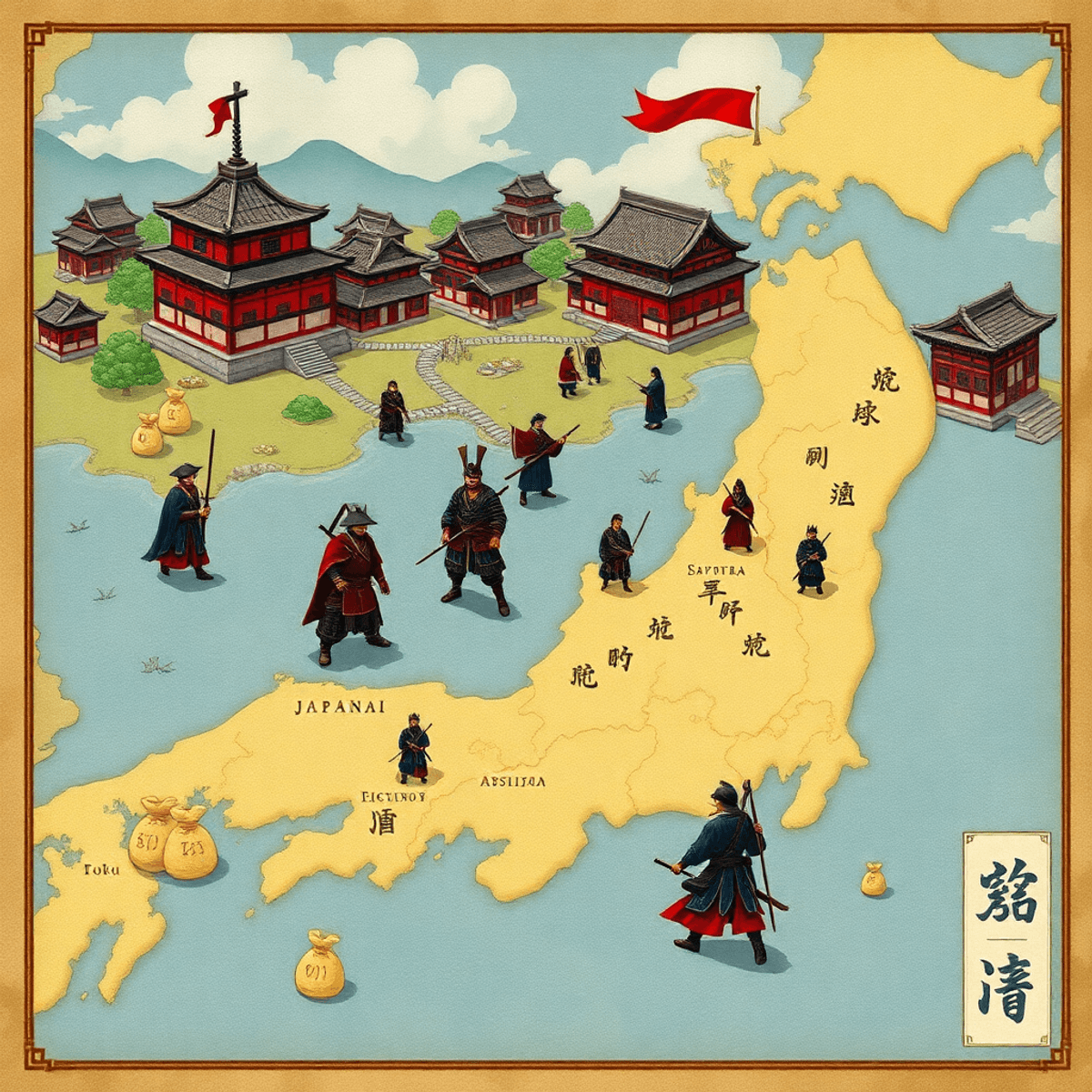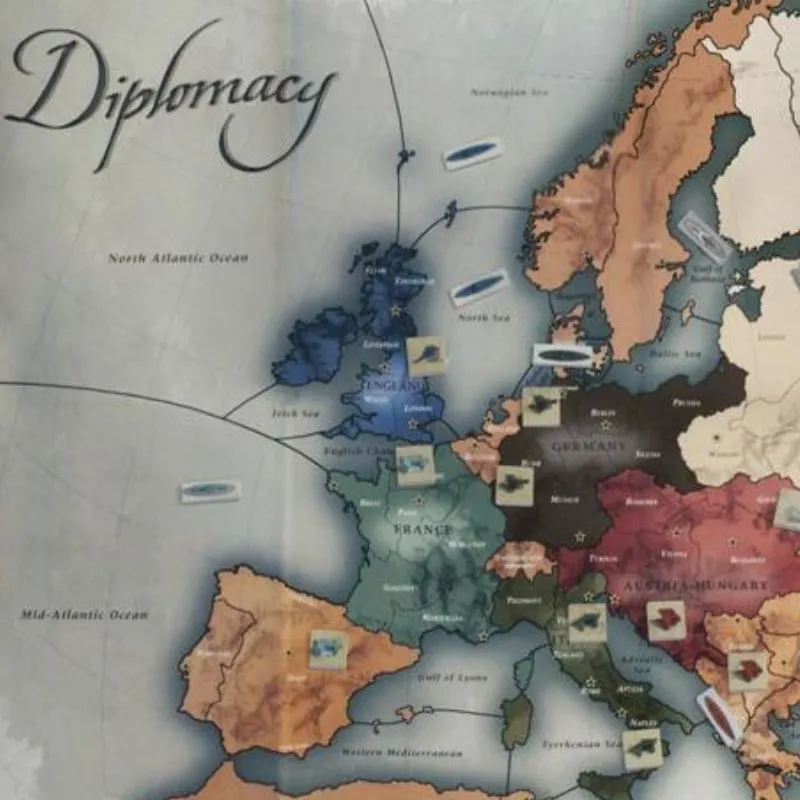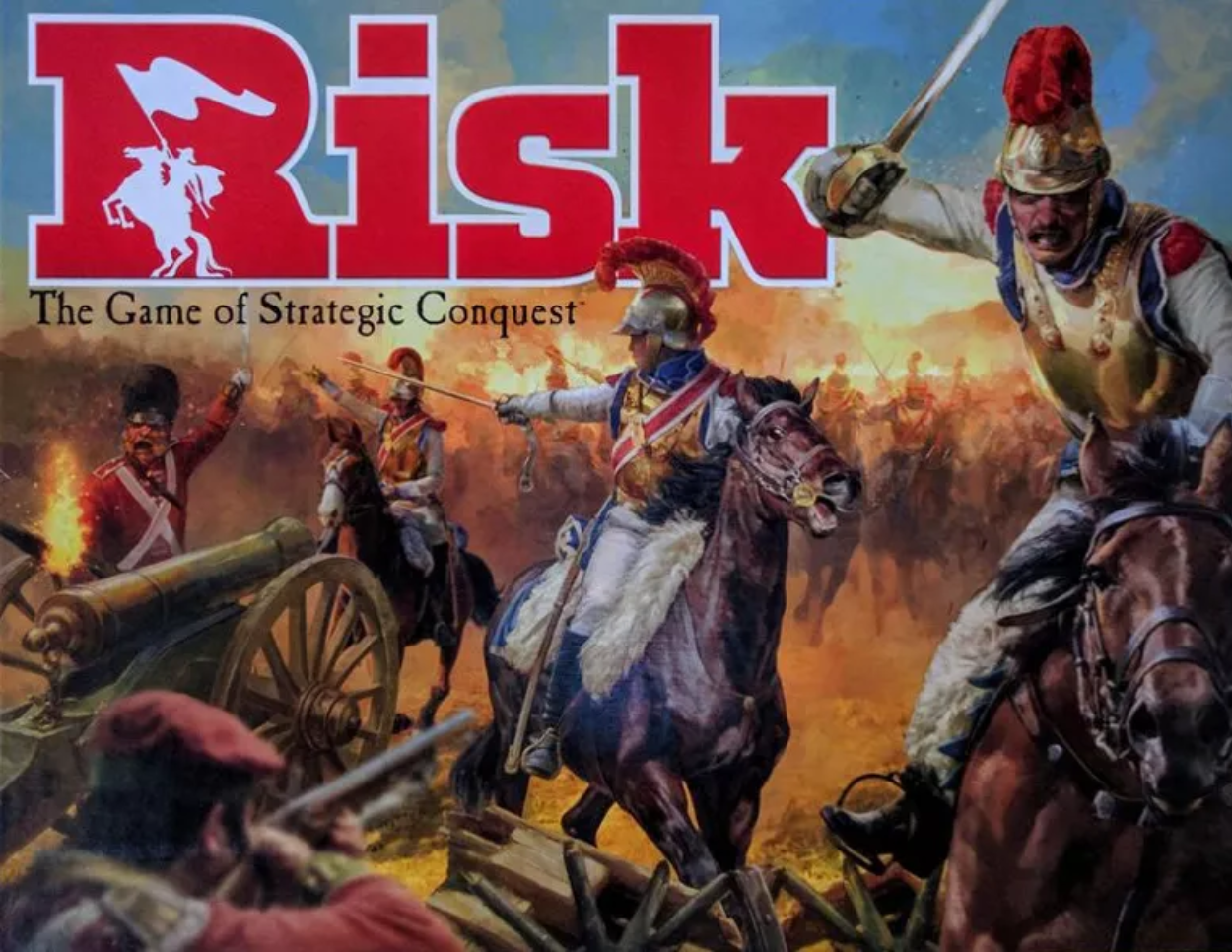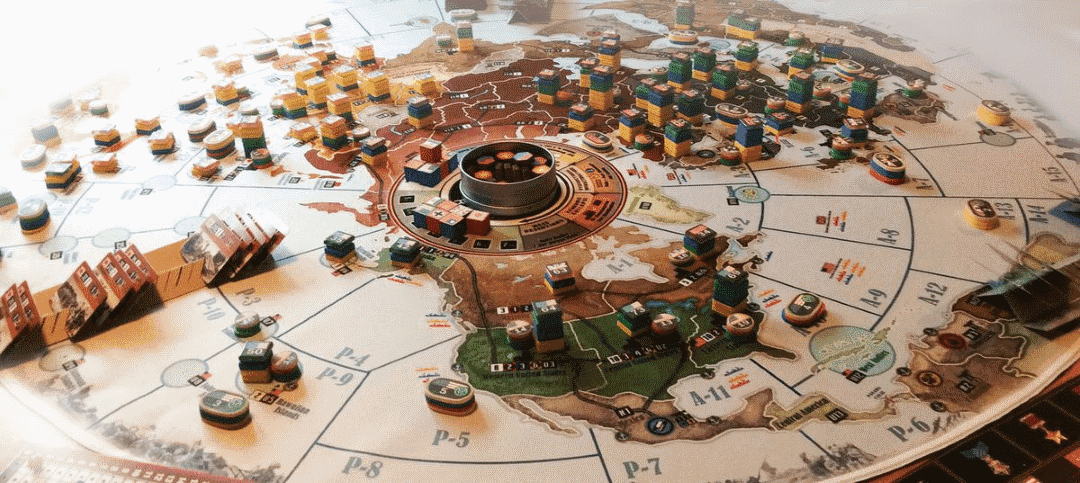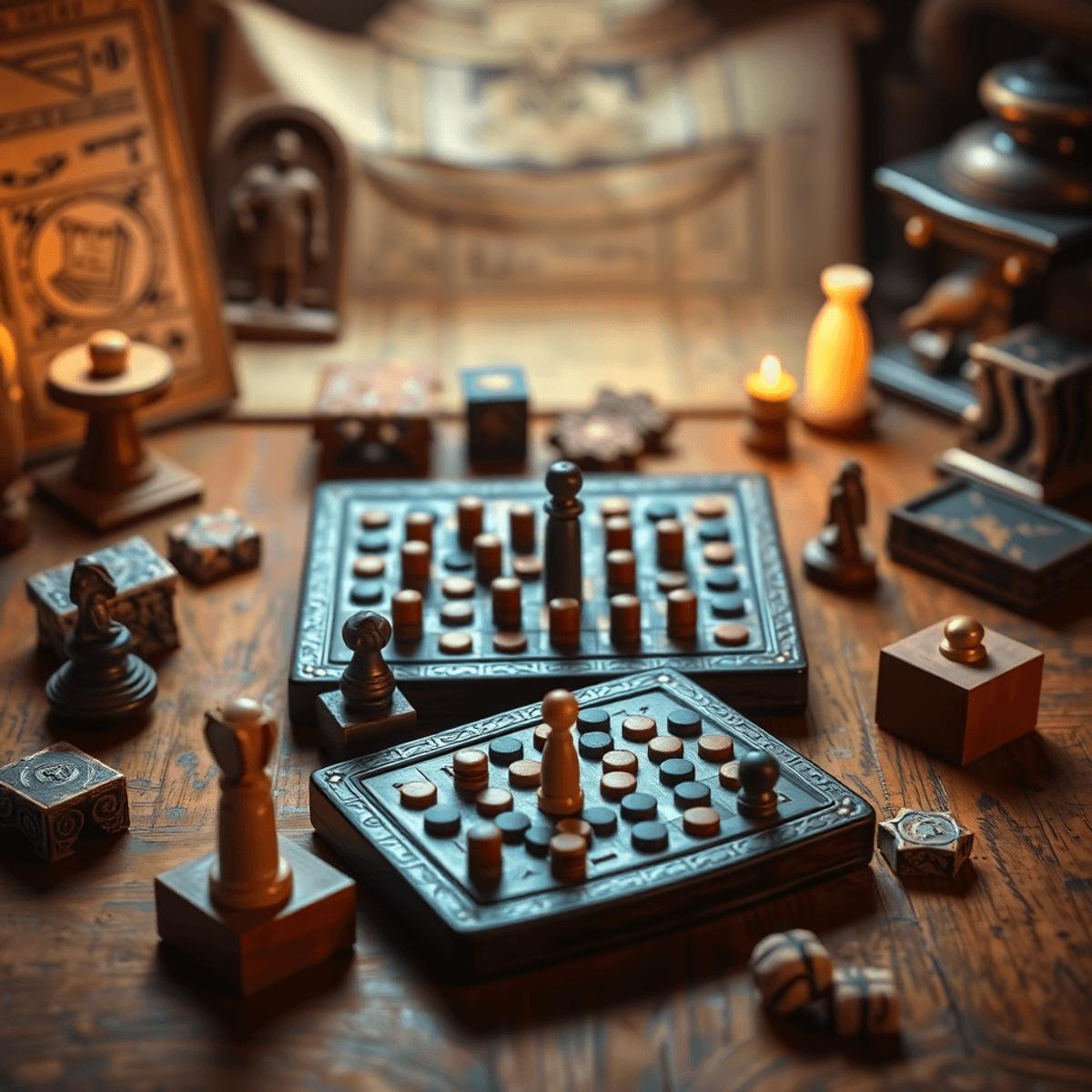
Strategy board games history is a testament to human creativity, combining elements of warfare, tactical thinking, and social interaction. From ancient Egyptian temples to modern living rooms, these games have fascinated players for thousands of years, influencing our understanding of conflict, competition, and collaboration.
The connection between war and gaming has led to significant advancements in game design. Ancient civilizations developed games like Senet and Go to replicate battlefield decisions, while contemporary classics such as Risk and Axis & Allies bring historical conflicts to life through meticulous strategic planning and resource management.
This article delves into the captivating history of strategy board games, exploring:
- The origins of strategic gaming in ancient cultures
- Chess’s evolution from Eastern meditation to Western obsession
- The impact of military on modern game design
- The emergence of intricate war simulations
- The cultural significance across various societies
- Technological advancements shaping the future of strategy gaming
By understanding this rich history, we can enhance our gaming experiences and gain insights into how these cherished pastimes mirror our changing perspectives on conflict, cooperation, and strategic thinking.
1. The Ancient History of Strategy Board Games
The history of strategic gaming goes back to the earliest days of human civilization. In those times, ancient societies created complex board games for various purposes such as entertainment, religious rituals, and military training.
Senet: Egypt’s Game of Destiny
Ancient Egyptians believed Senet represented the soul’s journey through the afterlife. This game, dating back to 3500 BCE, featured:
- 30 squares arranged in three rows
- Specialized pawns for movement
- Throw sticks for determining moves
- Complex rules reflecting spiritual beliefs
The game’s strategic elements taught players to anticipate moves and plan ahead – skills valued in both religious practices and daily life.
The Royal Game of Ur: Mesopotamian Innovation
Discovered in the Royal Cemetery of Ur, this game from 2600 BCE introduced:
- Race-based gameplay mechanics
- Distinctive board layout with safe squares
- Probability-based movement system
- Social status symbolism through gaming pieces
Archaeological evidence suggests the game spread across the ancient Near East, influencing future board game designs.
Go: The Eternal Game
China’s contribution to strategic gaming, Go, emerged around 2356 BCE and remains virtually unchanged:
- Simple rules masking profound complexity
- Territory control mechanics
- Infinite possible game variations
- Mathematical precision in gameplay
Go’s influence extended beyond China’s borders, becoming a cornerstone of strategic thinking across East Asia. The game’s principles of territory control and positional advantage continue to inspire modern game designers.
These ancient games laid the foundation for strategic gaming, establishing core mechanics and principles that resonate through centuries of game design.
2. Chess: From East to West and Beyond
Chess originated in India around 720 AD as Chaturanga, a game that represented the four branches of the Indian military: infantry, cavalry, elephants, and chariots. This ancient version of the game laid the groundwork for the modern chess pieces we know today – pawns, knights, bishops, and rooks.
The Journey of Chess
The game’s journey across different regions played a significant role in its development:
- Persian traders introduced Shatranj to the Arab world, where it thrived during the Islamic Golden Age.
- Arab merchants brought the game to Europe through Mediterranean trade routes, igniting a cultural revolution in strategic gaming.
The Transformation of Chess Rules
In the 15th century, chess underwent a major transformation with new rules:
- The queen gained unprecedented power, becoming the most formidable piece on the board.
- Bishops acquired their diagonal movement capability.
- Pawns gained the ability to move two squares on their first turn.
- The “en passant” capture rule was introduced.
These changes made the game faster-paced and opened up new strategic possibilities, establishing chess as the ultimate test of tactical thinking.
The Impact of Chess
The success of chess inspired the creation of more complex multi-player strategy games. Diplomacy, introduced in 1959, revolutionized the genre by incorporating negotiation and alliance-building mechanics. Players navigate intricate political landscapes, form temporary alliances, and engage in calculated betrayals – mirroring real-world diplomatic relations.
The influence of chess extends beyond just being a game:
- International tournaments attract players from all over the world.
- Chess notation systems standardize how games are recorded.
- Computer algorithms challenge human strategic thinking.
- Educational programs use chess as a tool to develop critical thinking skills.
The evolution of chess shows us how a simple two-player game can evolve into a sophisticated platform for strategic innovation and social interaction.
3. Military Strategy and Conflict-Themed Board Games
Military strategy has profoundly shaped modern board game design, introducing sophisticated mechanics that mirror real-world warfare principles. Game designers have incorporated elements such as:
- Supply Line Management: Players must maintain resource chains to support their armies
- Force Deployment: Strategic positioning of units across game boards
- Command Structure: Hierarchical organization of military units
- Battle Tactics: Combat resolution systems reflecting historical warfare
The release of Risk in 1959 marked a pivotal moment in conflict-themed gaming. Its innovative mechanics of territorial conquest and dice-based combat created a template for future war games. Players experienced the complexities of global domination through careful resource allocation and diplomatic maneuvering.

Axis & Allies (1981) elevated the genre by introducing:
- Asymmetrical starting positions
- Historically accurate unit types
- Complex economic systems
- Multiple victory conditions
These games sparked cultural conversations about power, conquest, and international relations. Their popularity coincided with significant historical events – Risk during the Cold War era and Axis & Allies amid renewed interest in World War II history.
The 1970s saw the emergence of specialized military simulations. Games like Squad Leader introduced detailed combat mechanics and realistic battlefield scenarios. These titles attracted history enthusiasts and veterans, creating communities dedicated to understanding military strategy through gaming.
Modern conflict-themed games continue this evolution. Titles like Memoir ’44 blend accessibility with historical accuracy, while Twilight Imperium incorporates political intrigue and resource management into interstellar warfare. These games demonstrate how military strategy principles adapt to diverse settings while maintaining their core tactical elements.
4. War Simulation Board Games: Bridging History and Tactics
War simulation board games are complex games that recreate historical battles, combining strategic thinking with an understanding of history. These games have changed the world of strategy gaming by introducing intricate rules that closely resemble actual military operations.
Advanced Gaming Mechanics
These games include advanced features such as:
- Detailed systems for resolving combat
- Management of supply lines
- Consideration of weather effects on troop movement
- Limitations on command and control
- Accurate representation of historical unit capabilities
The 1970s marked a turning point with the release of Squad Leader, which revolutionized tactical warfare simulation. This game introduced innovative concepts like line-of-sight rules and morale systems, setting new standards for realism in war gaming.
Historical Accuracy in Design
War simulation games meticulously recreate battlefield conditions through:
- Historically accurate maps and terrain features
- Authentic unit compositions and capabilities
- Period-specific weapons and technology
- Real-world military doctrine implementation
Twilight Struggle stands as a masterpiece of Cold War simulation, capturing the tension between the USA and USSR through cards representing actual historical events. The game’s mechanics brilliantly simulate the domino theory and nuclear brinkmanship of the era.
Modern titles like Combat Commander and Commands & Colors series have refined these concepts, introducing streamlined mechanics while maintaining historical authenticity. These games balance playability with tactical depth, creating engaging experiences for both casual players and hardcore enthusiasts.
Digital adaptations have expanded the reach of war simulation games, enabling complex calculations and rule enforcement that would be cumbersome in traditional tabletop formats. This technological integration has attracted new audiences while preserving the genre’s commitment to historical accuracy.
5. The Social Impact of Strategy Board Games and its History Across Cultures
Strategy board games go beyond just being fun to play; they also bring people together and help different cultures understand each other better.
1. Bringing Generations Together in Japan
In Japan, the game of Go is more than just a pastime. It connects multiple generations, with dedicated clubs known as Go salons providing spaces for players to engage in strategic battles while building meaningful relationships.
2. Traditional Gathering Spaces
Throughout history, various gathering places have highlighted the social importance of strategy gaming:
- Middle Eastern Coffee Houses – Historical centers where chess matches unite communities
- Chinese Tea Houses – Traditional venues for playing Go and Mahjong
- European Pubs – Popular spots for casual strategy gaming meetups
3. Transforming Local Traditions into Global Exchanges
The rise of international tournaments has transformed local gaming traditions into global cultural exchanges. The World Chess Championship, dating back to 1886, exemplifies how competitive gaming bridges cultural divides. These events attract players from diverse backgrounds, creating lasting connections that extend beyond the gaming table.
4. Celebrating Culture through Strategy Games
Strategy board games also play significant roles in cultural celebrations:
- Lunar New Year celebrations featuring traditional games
- Family gatherings during Ramadan incorporating strategy gaming
- Holiday traditions centered around chess tournaments
5. Modern Hubs for Cultural Exchange
Modern board game cafes have emerged as contemporary cultural hubs, blending traditional gaming with social experiences. These venues create safe spaces for cross-cultural interactions, where language barriers dissolve through shared gaming experiences. The phenomenon of “socialization through gaming” has gained recognition among sociologists studying community building and cultural preservation.
6. Educating through Strategy Games
The impact extends to educational settings, where strategy games serve as tools for teaching cultural heritage and fostering international understanding. Schools worldwide incorporate these games into their curricula, recognizing their value in developing social skills and cultural awareness.
6. The Future of Strategy and War Gaming: Technology Meets Tradition
The digital revolution has sparked a transformation in traditional board gaming, creating hybrid experiences that blend physical and virtual elements. Digital adaptations of classic strategy games now offer enhanced features:
- AI opponents with varying difficulty levels
- Online multiplayer capabilities across global networks
- Tutorial systems for complex rule sets
- Automated scoring and rule enforcement
Despite these advancements, it’s important to recognize the truth about digital board games, which often come with their own set of challenges and limitations.
The Impact of Augmented Reality (AR)
Augmented reality (AR) has introduced innovative ways to experience strategy games. Players can witness:
- Battlefield animations emerging from physical boards
- 3D unit models replacing traditional pieces
- Dynamic terrain changes during gameplay
- Real-time battle simulations
The Rise of Virtual Tabletop Platforms
Virtual tabletop platforms like Tabletop Simulator and Board Game Arena have revolutionized remote gaming, enabling:
- Cross-platform accessibility
- Instant setup and cleanup
- Preservation of rare or out-of-print games
- Modification and custom content creation
The Potential of Blockchain Technology
The integration of blockchain technology presents new possibilities:
- Verifiable ownership of digital game assets
- Player-driven economies within game ecosystems
- Decentralized gaming communities
The Promise of Virtual Reality (VR) Developments
Virtual reality (VR) developments suggest upcoming innovations:
- Immersive battlefield perspectives
- Tactile feedback systems
- Social VR spaces for strategy gaming
- Mixed reality experiences combining physical and digital elements
These technological advances maintain the core appeal of strategy games while expanding their reach and capabilities. Game developers continue exploring ways to enhance traditional mechanics through digital innovation, creating experiences that honor gaming heritage while embracing future possibilities.
Conclusion
Strategy board games history is a testament to human creativity, social dynamics, and our fascination with resolving conflicts. These games go beyond just being entertaining – they are powerful educational tools that enhance critical thinking, improve problem-solving skills, and provide a deeper understanding of historical events.
The world of strategy gaming is constantly evolving, from the ancient Egyptian game Senet to modern digital adaptations. Each game has its own story to tell, reflecting the cultural values and military mindset of its time while teaching important lessons about managing resources, planning tactics, and negotiating diplomatically.
Ready to start your own strategic journey? Here’s how you can get started:
- Join local board gaming groups to learn from experienced players
- Research historical games that match your interests
- Try digital versions of classic strategy games
- Host regular game nights to build your own gaming community
- Explore different genres, including war simulations and diplomatic challenges
The world of strategy board games is waiting for you – your next move could be the beginning of an incredible gaming adventure.


